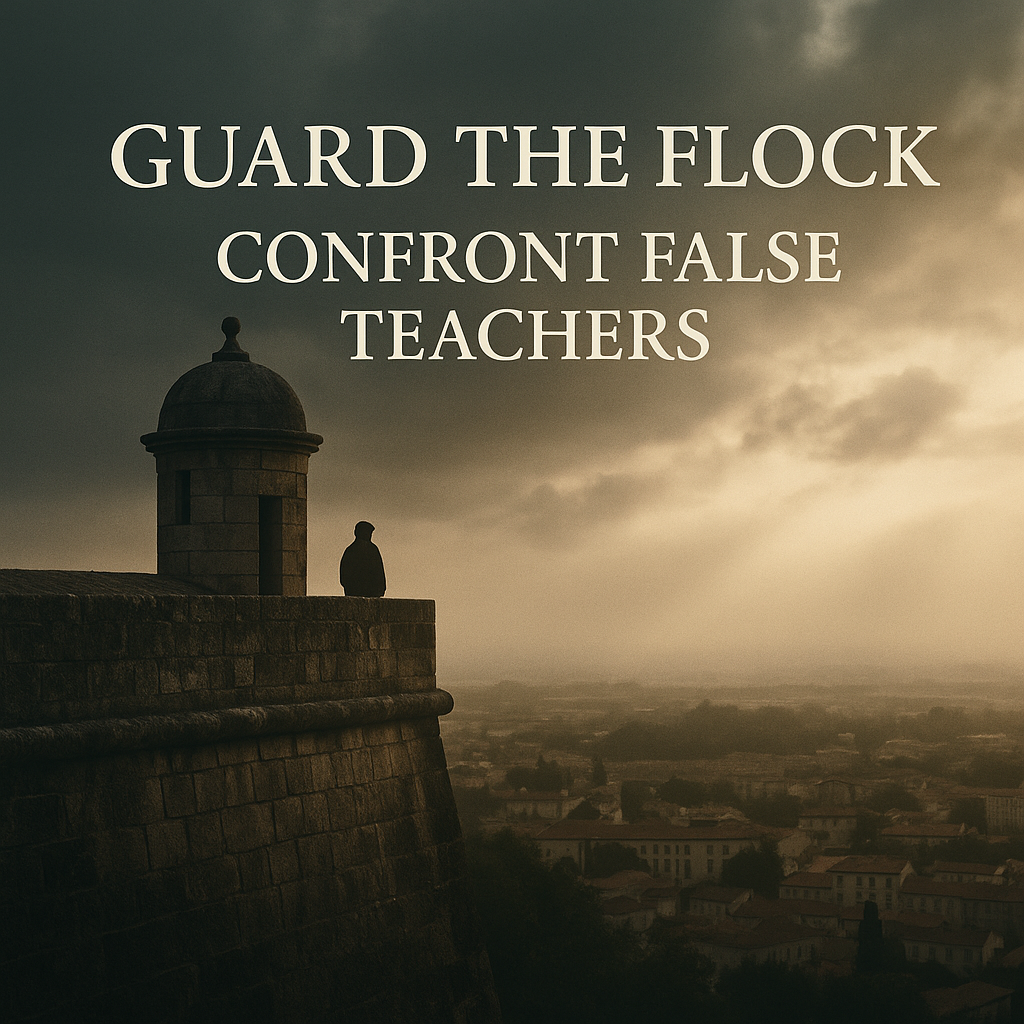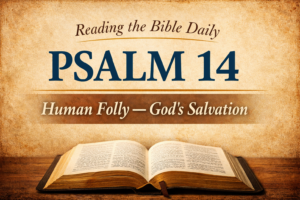⏱️ Estimated Reading Time: 4 min read
Calling Out False Teachers to Guard Christ’s Church
By Drew Von Neida
Contending for the Faith in an Age of Confusion
In a culture where tolerance is mistaken for biblical love, and silence is praised as humility, we must return to Scripture’s command, “contend for the faith that was once for all delivered to the saints” (Jude 3). This is not optional, the church has a God-given responsibility to guard the gospel, and that means exposing those who distort the truth, deceive the flock, and dishonor Christ.
Scripture is not silent on this issue, and neither should we be.
Truth and Love Go Together
Calling out false teachers is not prideful or elitist, it is an act of love, love for the Lord Jesus, love for His church, and love for the lost. If we love truth, we must care enough to say when it is being twisted. Allowing error to flourish unchecked is not humility, it is betrayal.
Faithful shepherds protect the flock, and that requires recognizing wolves, even when they speak fluent “Christianese” and wear the outward clothing of religiosity.
Biblical Examples of Confrontation
Jesus Confronting the Pharisees (Matthew 23)
Jesus publicly rebuked the Pharisees with clarity and force, “Woe to you, scribes and Pharisees, hypocrites”. He called them blind guides, whitewashed tombs, and sons of hell, not because He lacked love, but because they twisted truth and led others astray.
Paul Naming Hymenaeus and Alexander (1 Tim. 1:19–20)
Paul does not hesitate to name names when protecting the church. Hymenaeus and Alexander shipwrecked their faith, so Paul handed them over to Satan that they might learn not to blaspheme.
Paul Warning About Alexander the Coppersmith (2 Tim. 4:14–15)
Again, Paul warns Timothy to beware of Alexander the coppersmith who strongly opposed the gospel. This was not personal revenge, it was spiritual vigilance.
John Confronting Diotrephes (3 John 9–10)
The Apostle John calls out Diotrephes for prideful control and rejection of apostolic authority. John pledges to expose his actions publicly, because unity and truth in the church matter more than avoiding confrontation.
Peter Exposing False Teachers (2 Pet. 2:1–3)
Peter warns of destructive heresies, greed, and deception, using sharp language. Why, because the souls of men were, and still are, at stake.
Jude’s Bold Rebuke (Jude 4, 12–13)
Jude describes false teachers as “hidden reefs,” “waterless clouds,” and “fruitless trees.” They pervert grace into sensuality and deny Jesus as Lord. His letter is a passionate call to contend and protect.
Why This Still Matters
False teachers rarely announce themselves. They may smile, quote Scripture, and sound spiritual, but behind the veneer is another gospel (Gal. 1:6–9). Whether it is grace without repentance, Jesus without Lordship, or love without truth, false teaching always destroys.
Silence in the face of such danger is not loving, it is complicity. We are called to stand firm in the truth (Eph. 6:13) and guard the flock entrusted to us (Acts 20:28).
How Should We Call Them Out
- With clarity – Call error what it is, and when necessary, name those spreading it (Rom. 16:17).
- With Scripture – Root every warning in God’s Word, not personal opinion (2 Tim. 3:16).
- With humility – Aim for repentance and restoration, not revenge or self-promotion (Gal. 6:1).
- With courage – Fear God more than popular opinion or cultural pressure (Acts 5:29).
This balance protects us from two extremes, cowardly silence on one hand and harsh, prideful attacks on the other.
Conclusion, Boldness for Christ’s Glory
Calling out false teachers is not optional for the faithful church, it is essential. The same Word that commands us to love our enemies also calls us to “expose the unfruitful works of darkness” (Eph. 5:11).
Paul warned, “From among your own selves will arise men speaking twisted things, to draw away the disciples after them. Therefore, be alert” (Acts 20:30–31).
May the Lord grant His church boldness that is both truth-loving and people-loving, the kind that confronts error not for controversy’s sake, but for the glory of Christ and the good of His people. Let us be unshakable in truth, tender toward the flock, and unyielding in our stand for the gospel.
For more from our latest series here at Servants of Grace please visit: God’s Design for the Local Church and the Life of the Believer Archives – Servants of Grace
Drew is a regular writer at Servants of Grace and is a regular contributor to the Warriors of Grace podcast. He holds a Bachelor of Science in theological and biblical studies and a Master of Arts in Biblical exposition, both from Liberty University. He lives in Taylorsville, Georgia with his wife Brandy and their three children.




